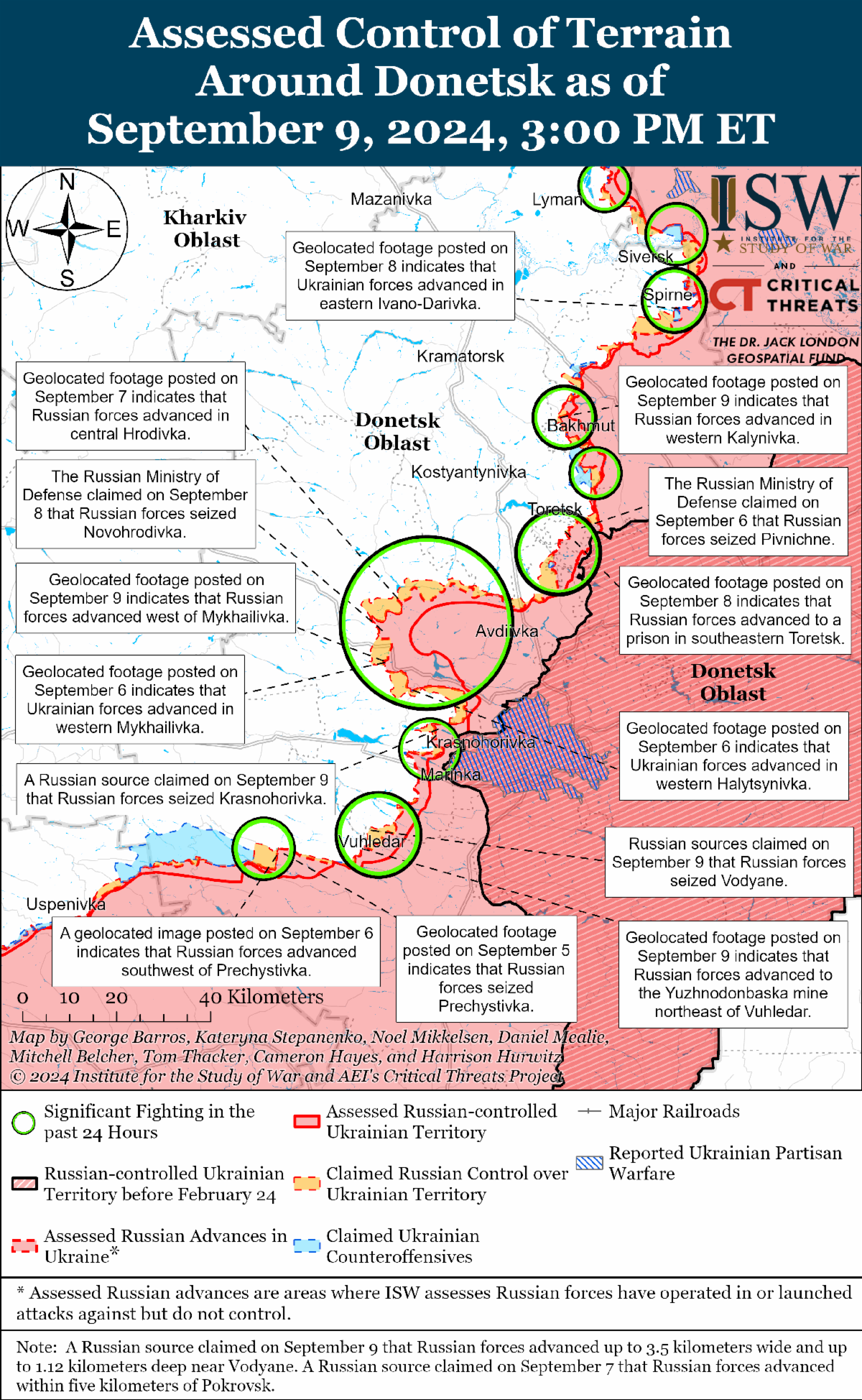Russian Foreign Minister Sergei Lavrov attended the Russia–Gulf Cooperation Council (GCC) Joint Ministerial Meeting of Strategic Dialogue in Saudi Arabia on September 9, likely as part of Kremlin efforts to advance the creation of its envisioned “Eurasian security architecture.” Lavrov held talks with GCC Secretary General Jasem Mohamed Al-Budaiwi, Saudi Foreign Minister Prince Faisal bin Farhan, and Saudi Crown Prince and Prime Minister Mohammad bin Salman on the sidelines of the Russia-GCC Strategic Dialogue and emphasized Russia’s interest in enhancing cooperation with Gulf states. Lavrov and Saudi officials discussed strengthening trade, cultural relations, and bilateral investments, and Lavrov invited bin Salman to the BRICS summit in Kazan, Russia in October 2024. Lavrov claimed in July 2024 that Russia and the People's Republic of China (PRC) are advocating within the GCC for the creation of a Eurasian security architecture, and Lavrov likely used his meetings with Gulf state leaders to promote this agenda. ISW previously assessed that Russia's proposal of a Eurasian security architecture is consistent with Russia's long-term strategic goal of disbanding Western unity, disbanding NATO from within, and destroying the current world order.
Kremlin officials are likely trying to shape international peace mediation efforts in the war in Ukraine while demonstrating Russia's unwillingness to engage in good-faith negotiations with Ukraine. Russian Foreign Minister Sergei Lavrov met with Brazilian Foreign Minister Mauro Vieira and Indian Foreign Minister Subrahmanyam Jaishankar on the sidelines of the Russia-Gulf Cooperation Council (GCC) meeting in Saudi Arabia on September 9. The Russian Ministry of Foreign Affairs (MFA) claimed that Lavrov discussed the war in Ukraine with Vieira and Jaishankar but did not offer details. Brazil and the People's Republic of China (PRC) have promoted their "Political Settlement of the Ukraine Crisis" six-point peace plan — whose key principles favor Russia — since May 2024. Indian Prime Minister Narendra Modi notably recently reaffirmed India's support for peace in Ukraine based on principles of international law such as respect for territorial integrity and the sovereignty of states. Lavrov, however, reiterated boilerplate Kremlin narratives on September 9 demonstrating Russia's unwillingness to engage in good-faith negotiations with Ukraine, claiming that Ukrainian President Volodymyr Zelensky's Peace Formula — which is indeed based on principles of international law — is an "ultimatum" and that Russia has never seriously considered the plan. Ukrainian officials have openly invited a Russian representative to attend Ukraine's second peace summit later in 2024.
Key Takeaways:
- Russian Foreign Minister Sergei Lavrov attended the Russia-Gulf Cooperation Council (GCC) Joint Ministerial Meeting of Strategic Dialogue in Saudi Arabia on September 9, likely as part of Kremlin efforts to advance the creation of its envisioned “Eurasian security architecture.”
- Kremlin officials are likely trying to shape international peace mediation efforts in the war in Ukraine while demonstrating Russia's unwillingness to engage in good-faith negotiations with Ukraine.
- The Kremlin leveraged Russian regional elections from September 6 to 8 to integrate trusted Russian military veterans of the war in Ukraine into the Russian government, likely as part of an ongoing attempt to appease Russian servicemembers, boost domestic support for the war, and build out a cadre of Kremlin-affiliated local officials.
- The Kremlin refrained from replacing Acting Kursk Oblast Governor Alexei Smirnov during the Russian regional elections, likely in support of an ongoing effort to downplay the societal impacts of Ukraine’s incursion into Kursk Oblast.
- Ukrainian officials continue to warn that Russian forces are increasingly using chemical weapons in Ukraine.
- Russian forces recently regained lost positions in Kursk Oblast amid continued Ukrainian offensive operations in the area on September 9.
- Russian forces recently advanced along the Kupyansk-Svatove line, near Siversk, near Pokrovsk, and southwest of Donetsk City, and Ukrainian forces recently regained positions near Siversk.
- Russian President Vladimir Putin expanded Russian Defense Minister Andrei Belousov’s powers on September 9 by allowing him to grant eligible parties within the Russian Ministry of Defense (MoD) access to Russian state secrets (classified information).
| 





 [국방부] 제15차 한미일 안보회의(DTT) 결과
[국방부] 제15차 한미일 안보회의(DTT) 결과
 [ISW] 이스라엘-하마스 전쟁(이란) 업데이트, 2024년 9월 9일
[ISW] 이스라엘-하마스 전쟁(이란) 업데이트, 2024년 9월 9일